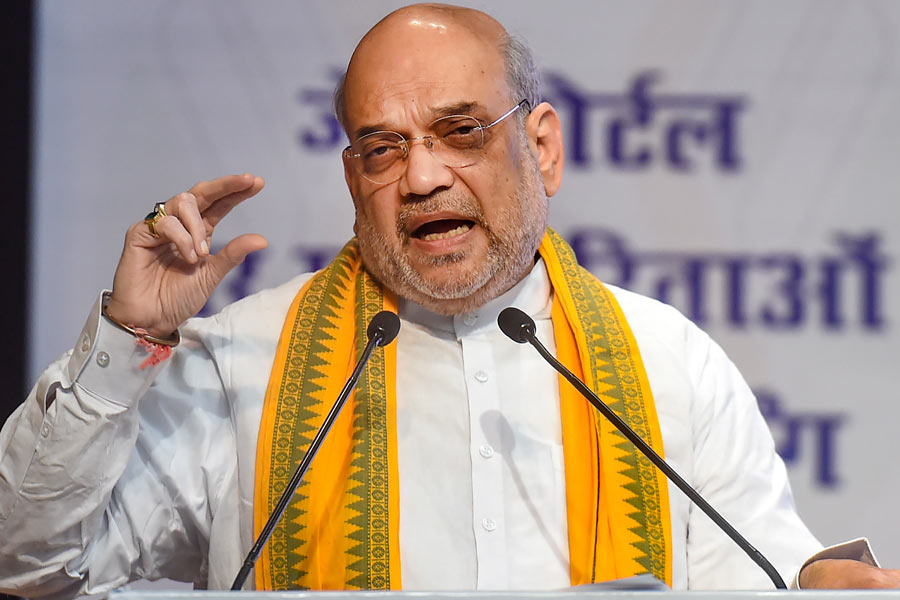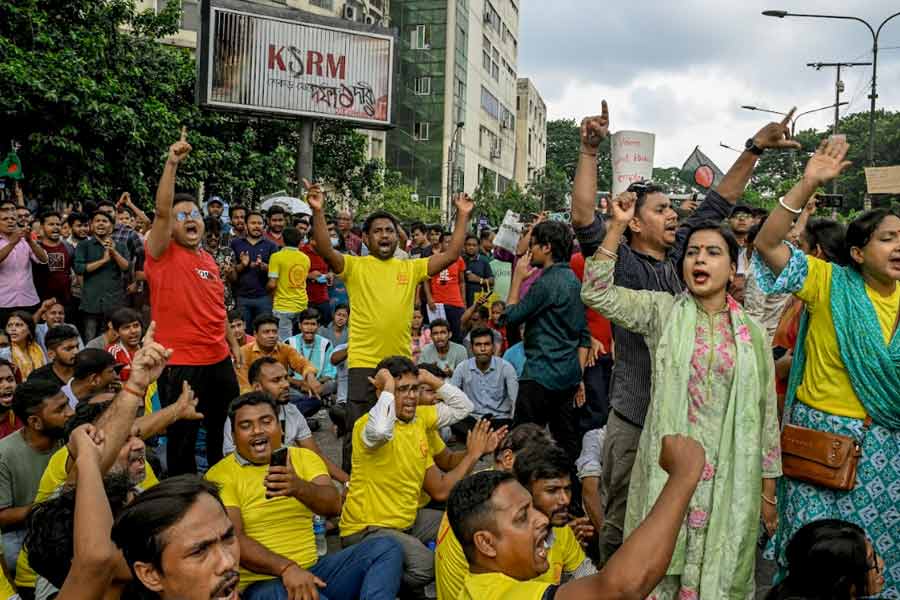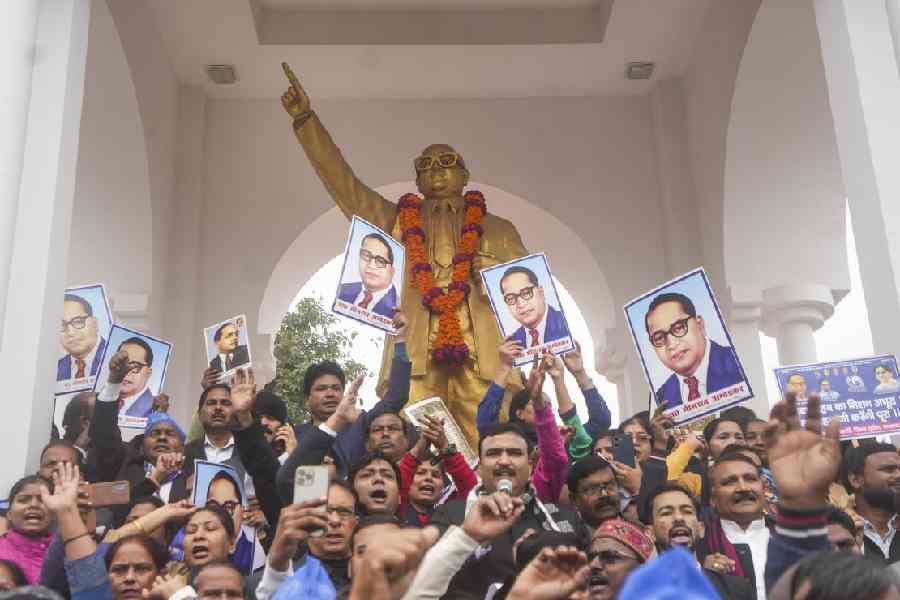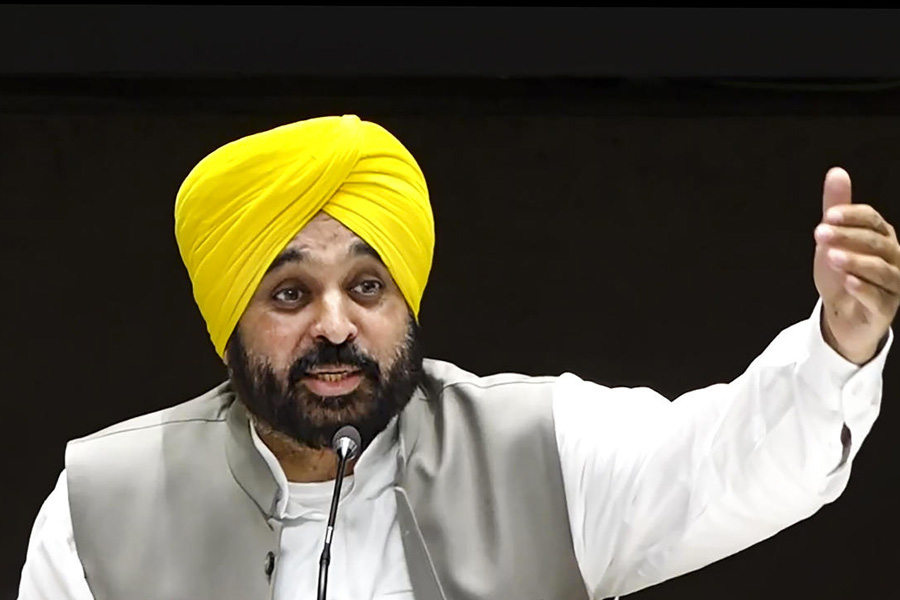The Narendra Modi government on Monday notified the rules for the implementation of the controversial Citizenship (Amendment) Act or CAA, prompting allegations that it had armed itself with another polarising plank ahead of the general election.
The CAA, which attempts to fast-track Indian citizenship for all refugees and asylum seekers from Pakistan, Afghanistan and Bangladesh except for Muslims, has been accused of violating the secular principles enshrined in the Constitution.
Further, it's widely seen as part of a new citizenship matrix that aims to shield non-Muslims while purportedly costing millions of Muslims their citizenship through a countrywide update of the National Register of Citizens (NRC). Such fears had triggered nationwide protests in 2019-20, during which over 100 people died in police firing and related violence.
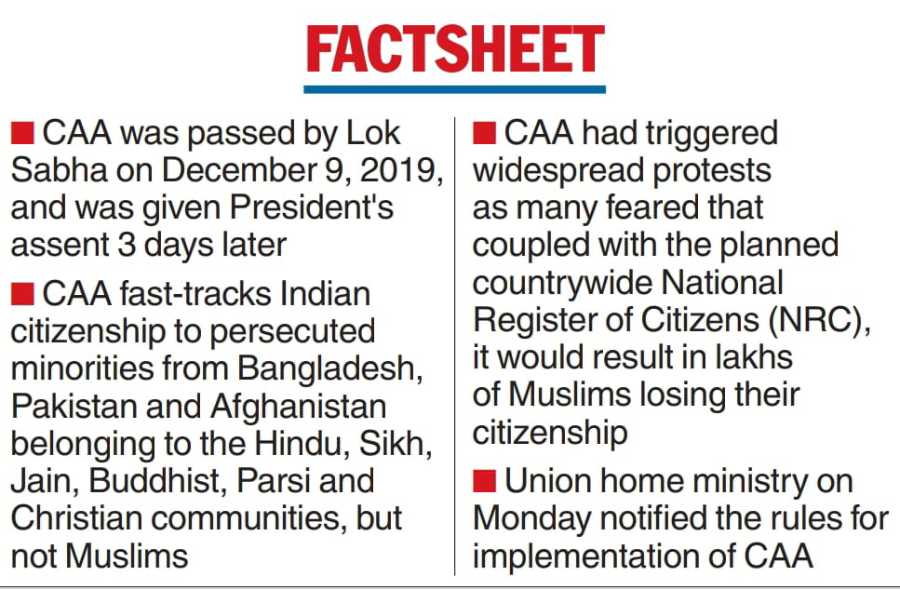
"The Modi government today notified the Citizenship (Amendment) Rules, 2024. These rules will now enable minorities persecuted on religious grounds in Pakistan, Bangladesh and Afghanistan to acquire citizenship in our nation," Union home minister Amit Shah said in a post on X.
"With this notification PM @narendramodi Ji has delivered on another commitment and realised the promise of the makers of our constitution to the Hindus, Sikhs, Buddhists, Jains, Parsis and Christians living in those countries."
The CAA fast-tracks Indian citizenship for persecuted Hindus, Sikhs, Jains, Buddhists, Parsis and Christians from Bangladesh, Pakistan and Afghanistan who came to India before December 31, 2014.
Parliament passed the Act on December 9, 2019, and it received presidential assent three days later. But its implementation was delayed, one of the reasons being the Covid pandemic.
Union home ministry officials said the notification was expected to bring the BJP electoral gain in border states like Bengal and Assam where illegal immigration from Bangladesh has been a political issue — implying they believed the CAA to be a possible precursor to an NRC update.
However, there’s considerable political opposition to the CAA in Assam from those who want a crackdown on all illegal immigrants, including the Hindus among them.
A former Intelligence Bureau chief told The Telegraph that the announcement of the CAA’s implementation just before the polls was “a calculated move” to polarise the electorate and consolidate Hindu votes in Bengal and Assam.
“They have long been eyeing Bengal, which has an around 30 per cent minority population,” he said.
Opposition parties have accused the Modi government of diverting attention from the people’s livelihood issues by repeatedly bringing up polarising issues before polls, from Pulwama-Balakot to the Ram Mandir and the CAA.
Bengal BJP leaders have been loudly demanding swift implementation of the CAA, portraying it as a one-stop solution for all the problems faced by, for instance, the Matuas -- a Hindu community most of whose members came over from Bangladesh.
State BJP leaders are said to have told their central leadership that if the CAA isn’t implemented at the earliest, the party would lose further ground in Bengal.
Monday’s home ministry notification says: “These rules, called the Citizenship (Amendment) Rules, 2024 will enable the persons eligible under CAA-2019 to apply for the grant of Indian citizenship. The applications will be submitted in a completely online mode for which a web portal has been provided.”
Under the rules notified, an applicant has to upload on the portal an “affidavit verifying the correctness of the statements made in the application along with an affidavit from an Indian citizen testifying the character of the of the applicant” and also “a declaration… that he/ she has adequate knowledge of one of the languages as specified in the Eighth Schedule of the Constitution”.
The rules add: “Every application made by the applicant shall have a declaration to the effect that the citizenship of his country shall stand renounced irrevocably in the event of his application being approved.”
While sharing an explainer on the CAA, the ministry said: “The Constitution of India grants us the right to provide religious persecuted refugees with fundamental rights and to grant citizenship from a humanitarian perspective.
“This is the law to give citizenship, (the) CAA will not take away (the) citizenship of any Indian citizen, irrespective of religion. This Act is only for those who have suffered persecution for years and have no other shelter in the world except India.”

